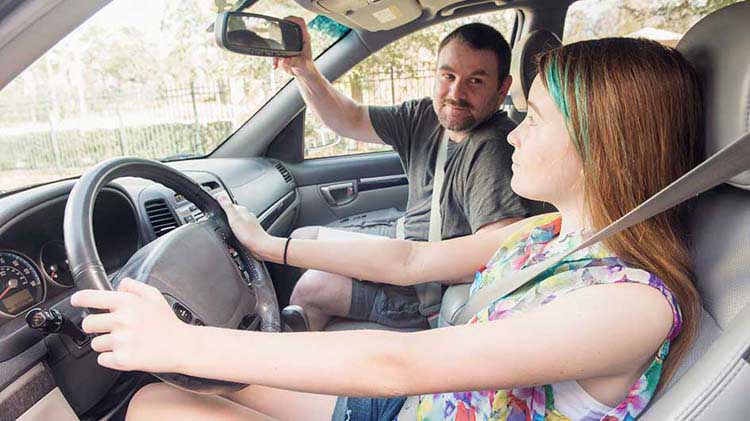Teen texting and driving
Thousands of crashes each year are caused by texting drivers, but many teens don't see the danger.
Texting and driving is dangerous no matter how skilled a driver is — it's especially dangerous to new drivers. Knowing the dangers is an important step towards making wise choices on the road.
Teen texting and driving statistics
Texting is a part of the mainstream culture, and for many young people, texting is an essential means of communication. 2022 statistics reveal that too many teens believe they can drive safely while looking at their phones. Yet, according to slicktext.com, teens who do text and drive spend 10% of their time driving outside of their lane, and teens make up the largest age group reported as distracted in fatal crashes. One poll found that 97% of teen drivers agree that texting and driving is dangerous but 43% admitted to doing it anyway. According to NHTSA, your eyes are off the road for at least 5 seconds when reading or sending a text. During that time — if traveling at 55mph — you have essentially driven the length of a football field without paying attention to the road.
Teen texting and driving deaths
The National Highway Traffic Safety Administration (NHTSA) found that 7% of all teen motor vehicle crash fatalities in 2020 involved distracted driving. It also found that 3,142 people were killed in distraction-affected crashes and teens between 15 and 19 years old made up 6% of that total.
Forty-eight states and Washington D.C. have banned text messaging for all drivers, and 36 states ban cellphone use by novice drivers.
Car crashes are the number one killer of teens in the United States, and drivers are increasingly using mobile web services. Parents should make sure they provide their teens the right message and the data to back it up. It might make a life-or-death difference.
Tips for parents and teen drivers to help avoid texting and driving
Talking to your teen can help them understand the dangers of texting and driving, but setting a good example is the most important tool a parent has. Remind your teen that a violation of distracted-driving laws may either delay when they can get their license or cause a current license to be suspended. Having to pay the cost of a ticket themselves, plus the additional insurance cost resulting from it, could be a good deterrent.
Other consequences parents can impose are taking away phone or driving privileges for a period of time. You can even have your teen sign a pledge to commit to distraction-free driving. Parents can also encourage their children to join a Students Against Destructive Decisions (SADD) chapter.
For additional tips for coaching your teen to drive safely you can view the Agents of Change: Common Distractions for Teens video.
Visit our collection of articles for additional safe driving tips for teens.




